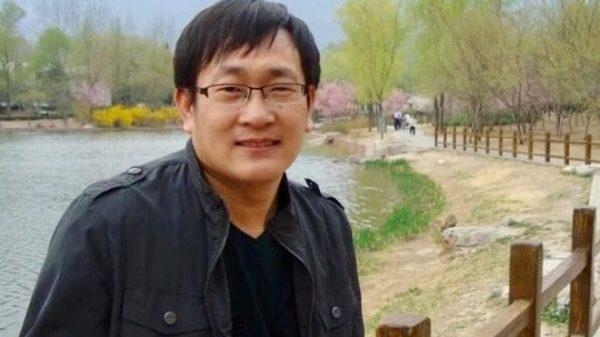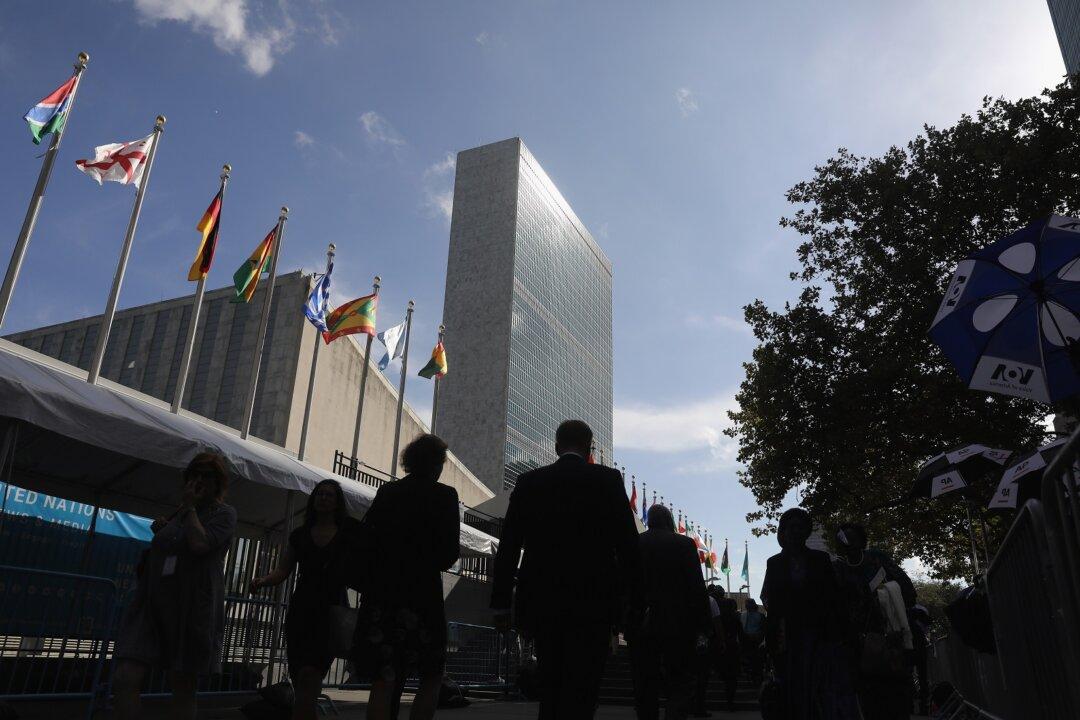GENEVA—A Chinese lawyer held for more than 16 months without trial is being unlawfully detained for his human rights work and should be released, a United Nations watchdog has said.
The U.N. working group on arbitrary detention issued its opinion on Yu Wensheng, dated May 29, after examining his case at a closed-door meeting of its five independent experts.
There was no immediate comment by China.
It is the 30th anniversary on June 4 of a bloody crackdown on pro-democracy protesters in and around Beijing’s Tiananmen Square.
“The Working Group concludes that the deprivation of liberty of Mr. Yu resulted from the peaceful exercise of his rights to freedom of expression and of association and his right to take part in government, and was contrary to article 7 of the Universal Declaration of Human Rights. His deprivation of liberty is arbitrary,” the experts said.
Yu should be released immediately and provided compensation in line with international law, they said.
The Chinese regime missed the deadline to submit its response, including to allegations that Yu has been denied any visits with a lawyer of his or his family’s choosing during his entire detention, the experts said.
Yu, now 51, was sent to Xuzhou City Detention Center in Jiangsu Province, where police placed him under “residential surveillance,” they said, adding that this amounted to incommunicado and secret detention.
He has been charged with “a vague and imprecise offense of inciting subversion of State power,” they said.
“This provision does not define what conduct amounts to subversion and overthrowing the socialist system through rumors, slander or other means. The communication of mere thoughts, ideas or opinions could potentially fall within the prohibited conduct,” the U.N. body said.
Defending Wang Quanzhang
Yu Wensheng had been Wang Quanzhang’s defense attorney before being stripped of his license and then arrested in January 2018.A Chinese court on Jan. 28 sentenced Wang to four and a half years in prison for subversion of state power.
Wang was arrested in a 2015 crackdown on legal advocates, an incident often referred to as “709.”
Wang offered legal aid to Falun Gong practitioners and other victims of repression by the Chinese regime, including petitioners whose land had been seized by developers, prisoners abused in labor camps, and those mistreated by the police.

Falun Gong is a Chinese spiritual discipline practiced by tens of millions of people who do meditation and follow traditional moral teachings based on the principles of truthfulness, compassion, and tolerance. In June 1999, then-Communist Party leader Jiang Zemin ordered Falun Gong banned; mass arrests followed the next month.
Wang had taken an interest in what was happening to Falun Gong since the beginning of the persecution, when he was still in law school, according to the China Human Rights Lawyers Concern Group (CHRLCG). In the 2000s, along with lawyers such as the renowned Gao Zhisheng, Wang was one of the first to represent Falun Gong practitioners in court.
Due to the highly political nature of the persecution, defending Falun Gong carried inherently greater risks than those associated with ordinary rights cases. Wang Quanzhang, Gao Zhisheng, and other human rights lawyers who represented Falun Gong practitioners have themselves been harassed, imprisoned, and tortured.





